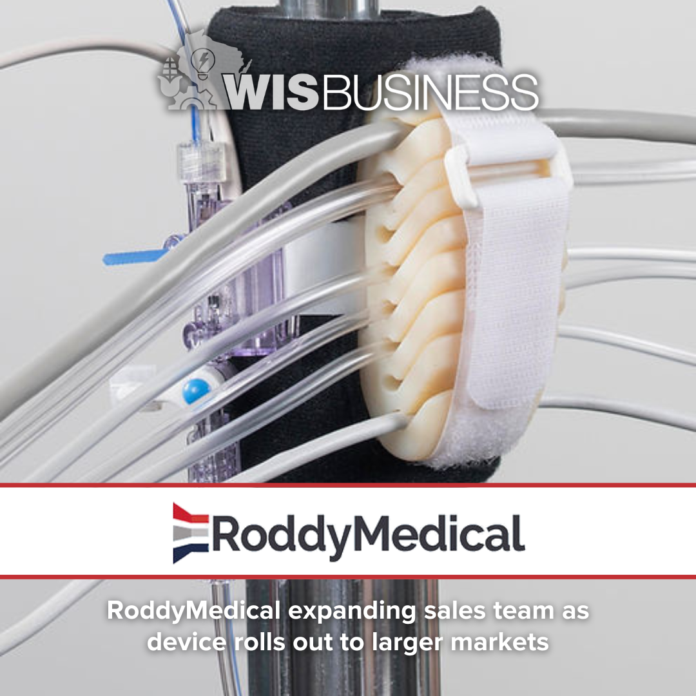Wauwatosa startup RoddyMedical plans to roll out its medical line management device at Mayo Clinic’s Rochester campus in the near future.
Founder and CEO Lindsey Roddy shared an update on the business during the Wisconsin Technology Council’s recent Early Stage Symposium in Madison. She said the company has made substantial progress since launching its SecureMove-TLC wearable device in 2022, and currently has 14 hospital customers in six states.
“We’re waiting in the next two weeks, we’ll get approval — because everything went super well with the trial — in Mayo Clinic Regional up in Rochester, so not just Rochester, but the entire region, that’s like 20 hospitals,” she said. “So that’s going to be our biggest rollout.”
The device resembles a blood pressure cuff with a series of secured notches on the outer half, which are meant to hold tubes or cords in place to avoid dangerous incidents, like a line getting accidentally pulled out of the patient.
Roddy noted her background is in intensive care, where she saw first-hand the risks of medical lines getting dislodged. Patients in the ICU can have more than a dozen lines used for life support, critical therapies and other important purposes, she explained. But these patients still need to be moved at times, creating a risk of accidents.
“I started asking questions, trying to figure out, ‘Well, what did I do wrong?’ Found out and verified this is very, very common,” she said.
Other options on the market for securing medical lines will fail under between 4 and 9 pounds of force, according to Roddy. She said her product can handle more than 80 pounds of force.
“It’s legitimately saved lives to date, and then it helps with some other hemodynamic monitoring and adjusting that I have to do as a nurse … so we’re really excited about the technology,” she said.
The company brought on dozens of sales staff at the start of October, going from a team of two to a more than 50-person national sales team. And it recently landed a national contract with Vizient, which Roddy says “puts us effectively on contract with 4,000 hospitals” through that deal alone.
“We’ve got hospitals that don’t even want to trial it, they just want to get approval and purchase and roll out,” she said.
See more coverage from the Early Stage Symposium here.






